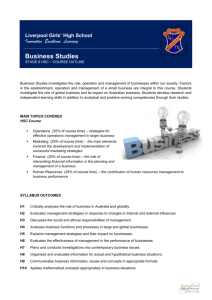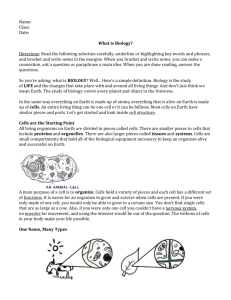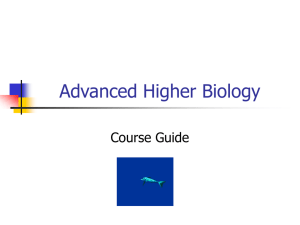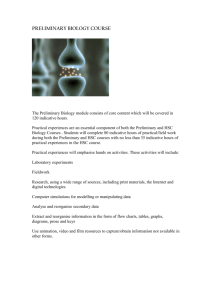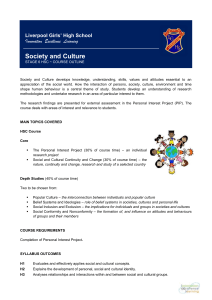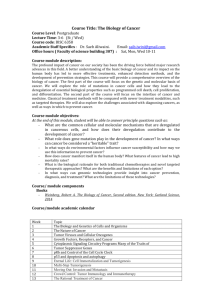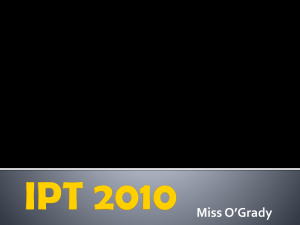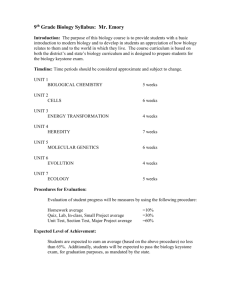Biology Course Outline - Liverpool Girls` High School
advertisement
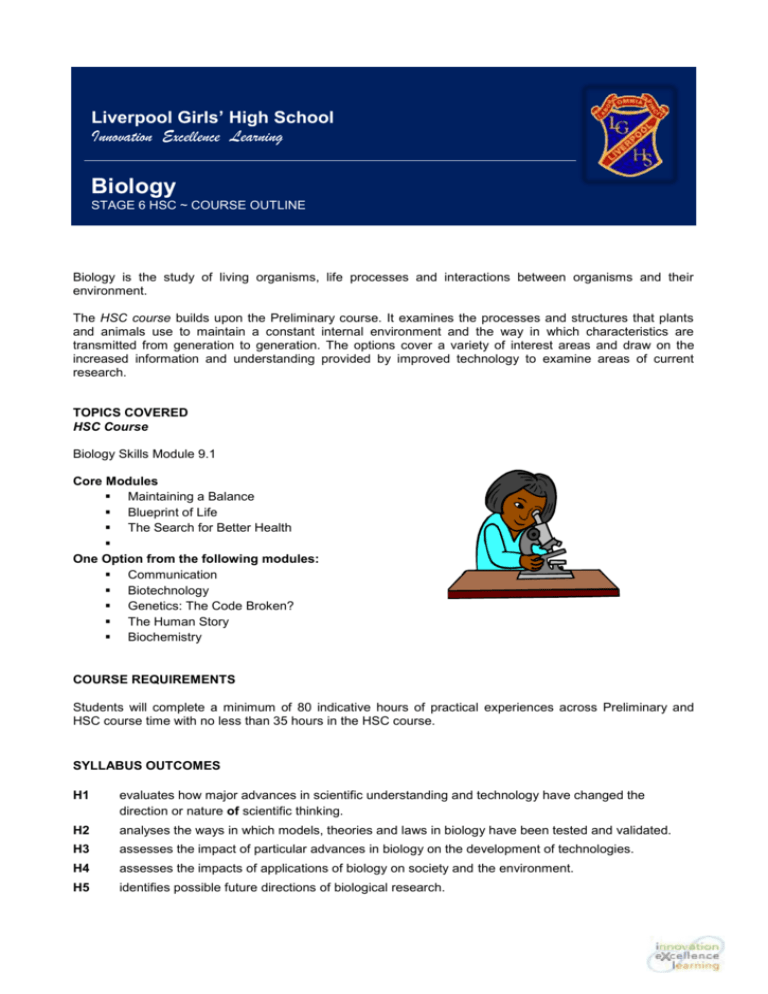
Liverpool Girls’ High School Innovation Excellence Learning Biology STAGE 6 HSC ~ COURSE OUTLINE Biology is the study of living organisms, life processes and interactions between organisms and their environment. The HSC course builds upon the Preliminary course. It examines the processes and structures that plants and animals use to maintain a constant internal environment and the way in which characteristics are transmitted from generation to generation. The options cover a variety of interest areas and draw on the increased information and understanding provided by improved technology to examine areas of current research. TOPICS COVERED HSC Course Biology Skills Module 9.1 Core Modules Maintaining a Balance Blueprint of Life The Search for Better Health One Option from the following modules: Communication Biotechnology Genetics: The Code Broken? The Human Story Biochemistry COURSE REQUIREMENTS Students will complete a minimum of 80 indicative hours of practical experiences across Preliminary and HSC course time with no less than 35 hours in the HSC course. SYLLABUS OUTCOMES H1 evaluates how major advances in scientific understanding and technology have changed the direction or nature of scientific thinking. H2 analyses the ways in which models, theories and laws in biology have been tested and validated. H3 assesses the impact of particular advances in biology on the development of technologies. H4 assesses the impacts of applications of biology on society and the environment. H5 identifies possible future directions of biological research. H6 explains why the biochemical processes that occur in cells are related to macroscopic changes in the organism. H7 analyses the impact of natural and human processes on biodiversity. H8 evaluates the impact of human activity on the interactions of organisms and their environment. H9 describes the mechanisms of inheritance in molecular terms. H10 describes the mechanisms of evolution and assesses the impact of human activity on evolution. BOSTES ASSESSMENT INFORMATION External examination Marks Section I – Core 20 Part A Objective response questions 55 Part B Short-answer questions Section II – Options Candidates answer one question on the option they have studied TOTAL MARKS 35 100 Internal assessment A. Knowledge and understanding of: • the history, nature, and practice of biology, applications and uses of biology and their implications for society and the environment, and current issues, research and developments in biology • cell ultrastructure and processes, biological diversity, environmental interactions, mechanisms of inheritance and biological evolution B. Skills in: • planning and conducting firsthand investigations • gathering and processing firsthand data • gathering and processing relevant information from secondary sources C. Skills in: • communicating information and understanding • developing scientific thinking and problem-solving techniques • working individually and in teams TOTAL MARKS Weighting 40 30 30 100 Task No. Targeted Outcomes Learning Context Task Weighting Date Due A B C Ma rks EVIDENCE OF LEARNING (Assessment) 1 H3–6 Maintaining a balance Topic Quiz T4 Wk 9 10% 2 H 1, 2, 5, 9, 13 Blue Print of Life Fieldwork / research T1 Wk 10 5% 10% 20% 35% 3 H 1 – 16 MAB, BOL, TSFBH Trial HSC Examination 15% 2.5% 2.5% 20% 4 H 12 – 14 Communication Practical Task 10% 17.5% 7.5% 35% 40% 30% 30% 100 % TOTAL Tm 2 2 Tm3 Wk 3 10%
